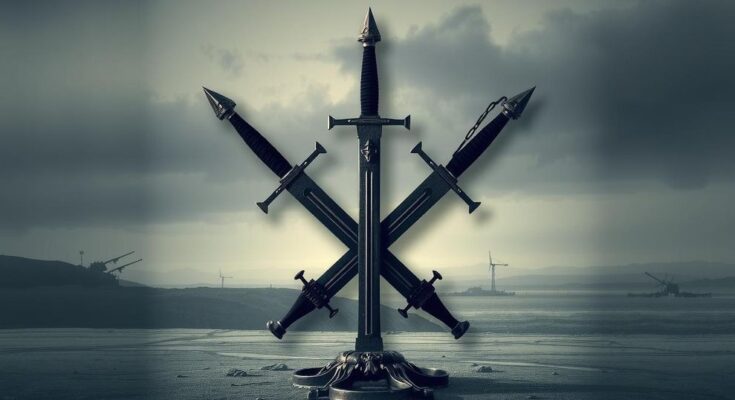South Korea reports that North Korea is preparing to send more troops to Ukraine, despite heavy casualties from previous deployments. The regime aims to enhance support for Russia, seeking advanced military technology in return. Former President Trump expresses intentions to rekindle diplomatic ties with North Korea’s leader, Kim Jong-un, highlighting past discussions on denuclearization, amid ongoing geopolitical tensions.
Military officials from South Korea have reported that North Korea is preparing to send additional troops to the ongoing conflict in Ukraine, despite significant casualties among previously deployed North Korean soldiers. This announcement follows claims that the North has sent approximately 11,000 troops into the conflict, many of whom have suffered fatalities or injuries. South Korea’s Joint Chiefs of Staff (JCS) have noted that North Korea is suspected of implementing measures for further troop deployment following these losses.
The origins of North Korea’s military involvement in Ukraine date back to last autumn, when Kim Jong-un and Vladimir Putin established a mutual defense agreement aimed at enhancing their alliance against perceived Western dominance. In exchange for deploying troops and supplying weapons, North Korea seeks to gain access to advanced Russian missile and satellite technology, which could significantly bolster its military capabilities.
In a separate development, former President Donald Trump expressed intentions to renew his diplomatic engagement with Kim Jong-un, complimenting him as a “smart guy” during a Fox News interview. Trump claimed that during his first term, he successfully addressed the North Korean threat, contrasting that with his predecessor Barack Obama’s characterization of North Korea as a significant danger. Trump expressed his willingness to reach out to Kim again, indicating a desire to rekindle their previous dialogues.
Trump’s initial diplomatic efforts included a historic summit in Singapore in June 2018, leading to an agreement on the denuclearization of the Korean Peninsula. However, subsequent negotiations faltered, culminating in a failed summit in Hanoi in February 2019 when discussions on sanctions relief stalled. Since then, no significant talks have taken place, and North Korea has continued its ballistic missile tests, remaining inactive in its nuclear weapon tests since 2017.
The repercussions of North Korea’s participation in the Ukraine conflict have been largely negative, attributed to the inexperience of its troops and their unfamiliarity with the combat environment. Recently, two North Korean soldiers were captured by Ukrainian forces, one of whom claimed he was misled regarding his deployment, believing he was participating in a training exercise instead. Reports estimate that approximately 11,000 North Korean soldiers are currently in Russia’s Kursk region, with South Korean intelligence indicating around 270 have died and about 2,700 have been injured in the conflict.
While North Korea has not formally acknowledged its role in the war, Russian President Putin has not denied the presence of North Korean troops, stating that their deployment would comply with international law. Furthermore, North Korean Vice-Foreign Minister Kim Jong-gyu echoed this sentiment, suggesting that their involvement adheres to legal parameters.
The involvement of North Korean troops in the Ukraine conflict signifies a deepening alliance between North Korea and Russia, characterized by military cooperation against perceived Western dominance. The backdrop to this development includes historical agreements and the failure of diplomatic talks between the United States and North Korea, illustrating the complex geopolitics at play. North Korea’s aspiration for advanced military technology in exchange for its troops further highlights the alliance’s strategic interests amidst ongoing global tensions.
In summary, the reported increase in North Korean troops being sent to Ukraine underscores a troubling military engagement that has resulted in substantial casualties. The backdrop of failed diplomacy and a desire for military advancement fuels this alliance with Russia. As former President Trump seeks to revive dialogue with North Korea, the situational dynamics remain tense, reflecting the challenges of international relations in the face of evolving military commitments.
Original Source: www.theguardian.com




